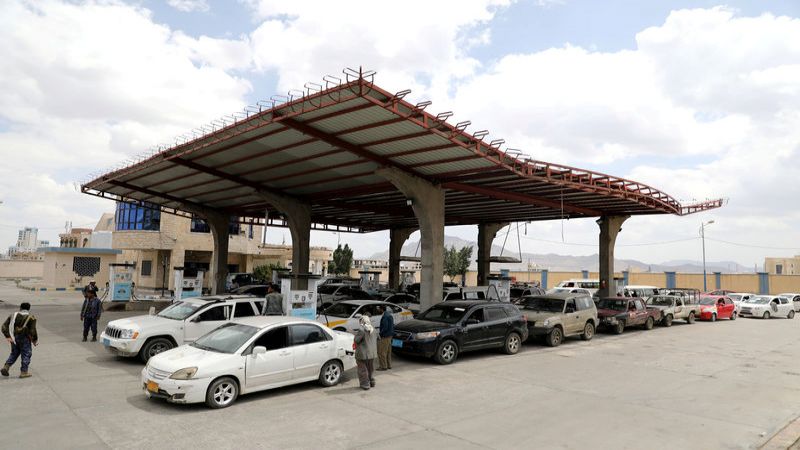
Local Editor
A fuel shortage is deepening Yemen's humanitarian crisis, forcing drivers to wait for days in lines that stretch back from some petrol stations as far as the eye can see.
The new shortage is just one of many problems causing suffering in the civil war being fought by the popular Houthi movement and a Saudi-led coalition backed by the West.
But its consequences are far-reaching. Fuel is needed not just for cars but also for water pumps, hospital generators and to transport goods around a country where millions are on the brink of famine.
"It's affecting us and all the Yemeni people," said Nashwan Khaled, who had already been waiting for two days in a queue for petrol in Sanaa where many petrol stations have been forced to close.
"I put my job and my life on hold," he said.
Petrol on the black market is selling for almost three times the official price. Drivers can queue for two or three days.
"Fuel shortages in Yemen exacerbate the already dire humanitarian situation in the country and lead to unacceptable levels of suffering," said Sultana Begum, a representative of the Norwegian Refugee Council humanitarian organization.
Imports into areas controlled by Houthis have to go through stringent controls imposed by the Saudi-led military coalition which intervened in Yemen in 2015 to forcefully restore the resigned regime of Abd-Rabbu Mansour Hadi.
Supplies can be held at ports and frontline borders for months because of bureaucracy on both sides, aid agencies say.
"Today we are in a very bad situation, there's a fuel crisis and they are stopping fuel ships from entering Yemen with the excuse of security," said Ahmed Nasser, standing at a petrol station. "We suffer shortages of fuel, goods, all commodities."
Ships also need permission from the Hadi regime and the Western-backed coalition to enter ports.
Last week, United Nations aid chief Mark Lowcock said he was concerned that imports were being further complicated by new Yemeni government regulations on commercial fuel.
He said earlier this month that the coalition and resigned regime were preventing 10 vessels carrying 163,000 metric tons of commercial fuel imports - more than an average month's imports - from entering the port of Hodeida. Two of the ships have since been allowed to dock, port sources told Reuters.
Source: News Agencies, Edited by Website Team